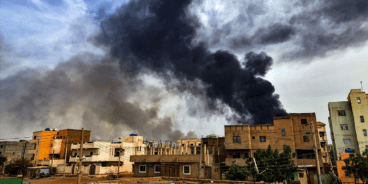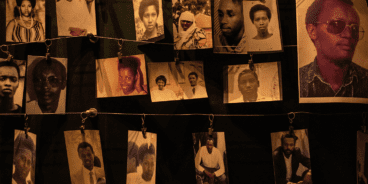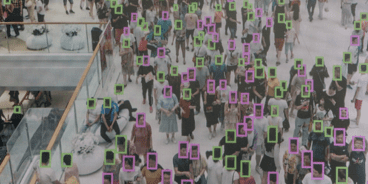
Atrocity Alert No. 135: Burundi, Iraq and North Korea
Atrocity Alert is a weekly publication by the Global Centre for the Responsibility to Protect highlighting situations where populations are at risk of, or are enduring, mass atrocity crimes.
Burundi orders closure of UN human rights office following torture report
On 4 December an investigation led by the British Broadcasting Corporation (BBC) reported on the existence of secret government detention facilities in Burundi, where alleged political opponents are tortured and often killed as part of what witnesses call an “orchestrated program to eliminate opposition.” Victims and former intelligence agents provided details regarding at least 22 facilities, and stated that the disappearance and death of government opponents has been approved at the highest levels of Burundi’s government.
In particular, witnesses accuse a senior official of Burundi’s intelligence service, Alexis “Nkoroka” Ndayikengurukiye, of overseeing torture at the facilities and even ordering the beheading of several prisoners. Video footage of a gutter allegedly running with blood outside one of the facilities in Bujumbura was widely circulated on social media in 2016, prompting the BBC investigation.
The report came shortly after the UN Secretary-General and his Special Envoy warned of ongoing systematic violations of human rights in Burundi, including forced disappearances, torture and incitement to violence. Two days after the release of the BBC’s findings the Burundian government ordered the closure of the UN human rights office in Bujumbura. Last May the government also expelled the Human Rights Council-mandated Commission of Inquiry (CoI) on Burundi despite having previously approved their deployment to the country.
While international attention on Burundi’s political crisis has decreased since 2015, policies implemented by the government of President Pierre Nkurunziza continue to pose a threat to the safety and security of all Burundians. According to the CoI, grave violations of human rights perpetrated by the national intelligence service, the police and the ruling party’s youth wing, the Imbonerakure, may amount to crimes against humanity. The UN Security Council should immediately impose targeted sanctions against individuals responsible for such violations, including those on the CoI’s list of suspected perpetrators.
One year after defeat of ISIL in Iraq, justice remains elusive
One year ago, on 9 December 2017, Prime Minister Haider al-Abadi formally announced the military defeat in Iraq of the so-called Islamic State of Iraq and the Levant (ISIL). Between 2014 and 2017 ISIL carried out a systematic campaign of mass atrocities against civilians in northern Iraq, including perpetrating a genocide against the minority Yazidi community. Since then, more than 200 mass graves have been discovered by the government and UN in formerly ISIL-held territory.
Despite ISIL’s defeat, sporadic clashes continue across parts of Nineveh Governorate. Cultural identities and religious loyalties also continue to be manipulated by some forces in Iraq, posing a threat to the country’s long-term stability and cohesion. Meanwhile, justice for Iraqi victims of atrocities remains elusive.
While hundreds of suspected ISIL members have been prosecuted in domestic courts on charges of terrorism, no one has been held accountable for the perpetration of genocide, war crimes or crimes against humanity. On 4 December the Head of the UN Investigative Team to Promote Accountability for Crimes Committed by ISIL/Da’esh (UNITAD), Karim Asad Ahmad Khan, briefed the UN Security Council for the first time. Khan reported that UNITAD would begin its investigative work in early 2019.
On Monday, during her Nobel Peace Prize acceptance speech, Yazidi activist and genocide survivor Nadia Murad emphasized that “justice is the only way to achieve peace and co-existence among the various components of Iraq.” The Iraqi government should adopt enabling legislation to incorporate genocide, war crimes and crimes against humanity into domestic law. The government should also investigate alleged human rights abuses carried out by members of its security forces (and affiliated militias) against Sunni civilians in areas previously occupied by ISIL. Finally, the international community should provide financial and technical assistance to UNITAD and help ensure that all ISIL perpetrators face justice for atrocities committed against the Iraqi people.
UN Security Council fails to address potential crimes against humanity in North Korea
This week the UN Security Council failed to garner the necessary support of its members to hold a meeting on the situation of human rights in the Democratic People’s Republic of Korea (DPRK), or North Korea. While some Council members informally cited the rapprochement between the United States and DPRK as the reason, others expressed the conviction that issues of human rights should not be discussed in the Council. The briefing would have required nine positive votes from the fifteen members of the Council in order to proceed.
Prior to 2014 the Security Council engaged with North Korea almost exclusively in the context of nuclear non-proliferation. However, following the February 2014 release of a report by the Human Rights Council-mandated Commission of Inquiry (CoI) on widespread and systematic human rights abuses within DPRK, the Council began holding annual meetings on the topic. The CoI determined that the DPRK government had committed crimes against humanity, including murder, enslavement, torture and sexual violence against its own citizens. In 2017 former UN High Commissioner for Human Rights Zeid Ra’ad Al Hussein briefed the Security Council on DPRK, reporting that he could not “point to any significant improvement in the human rights situation.”
Regrettably, the decision by the Security Council not to discuss the human rights situation in North Korea took place as the international community celebrated the 70th anniversaries of both the Genocide Convention and the Universal Declaration of Human Rights. It also follows a failed vote in March this year that prevented High Commissioner Zeid from briefing the Council on the human rights situation in Syria.
With five newly elected members entering the Council on 1 January, Security Council members should ensure that a meeting on the human rights situation in DPRK is held and that the new UN High Commissioner for Human Rights, Michelle Bachelet, is invited to brief.
Persistent and widespread violations and abuses of human rights remain one of the most reliable indicators of potential mass atrocity crimes. Early warning, followed by timely action, is essential for prevention.
Related Publications


Atrocity Alert No. 389: Genocide Prevention and Awareness Month, Myanmar (Burma) and North Korea
